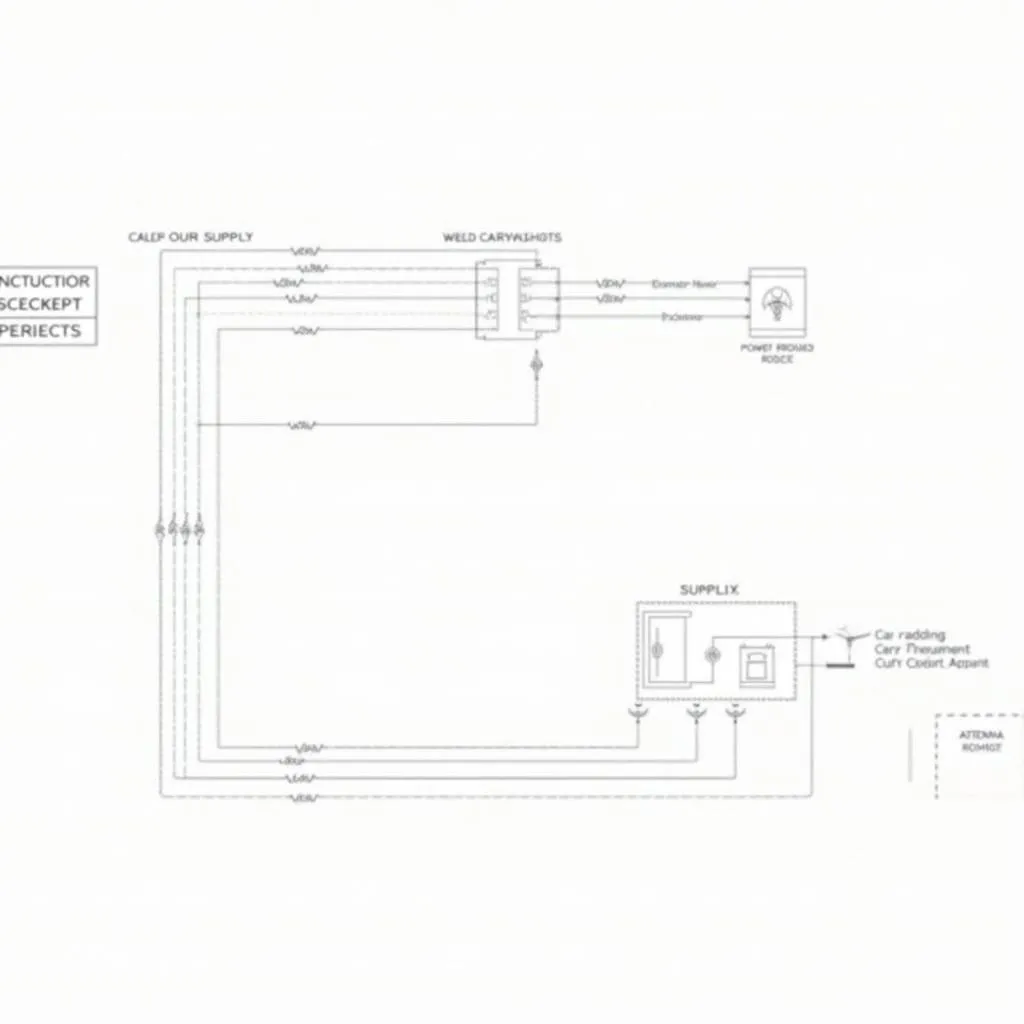The brake pad warning light on your Vauxhall Vectra is a crucial safety feature designed to alert you to potential issues with your braking system. Ignoring this warning could lead to decreased braking performance and potentially dangerous driving situations. This article will guide you through the common causes of a Vectra brake pad warning light, how to diagnose the problem, and potential solutions.
Understanding Your Vectra’s Braking System
Your Vectra utilizes a hydraulic braking system that relies on brake fluid pressure to activate the calipers and stop the vehicle. The brake pads, housed within the calipers, apply friction to the brake rotors, slowing the wheel’s rotation. Over time, brake pads wear down, eventually triggering the warning light.
Common Causes of a Vectra Brake Pad Warning Light
While worn brake pads are the most common culprit behind the warning light, several other factors can contribute:
- Worn Brake Pad Sensor: Most Vectras are equipped with a brake pad wear sensor, a small wire embedded within the brake pad material. As the pad wears, the sensor eventually makes contact with the rotor, completing a circuit and triggering the warning light on your dashboard.
- Low Brake Fluid: Insufficient brake fluid level can also illuminate the warning light. This could indicate a leak in your brake lines, a serious issue requiring immediate attention.
- Faulty Brake Pad Sensor: Like any electrical component, the sensor itself can malfunction. A short circuit or broken wire can cause the light to illuminate even with sufficient pad material remaining.
- ABS Issues: While less common, problems with the Anti-lock Braking System (ABS) can also trigger the brake pad warning light.
Diagnosing the Problem
If your Vectra’s brake pad warning light illuminates, it’s crucial to diagnose the root cause:
- Check Your Brake Fluid: Begin by inspecting the brake fluid level in the reservoir. If the fluid level is low, you likely have a leak and should consult a mechanic immediately.
- Inspect Your Brake Pads: If the brake fluid level is sufficient, the next step is to visually inspect your brake pads. Look through the spaces between the wheel spokes to assess the thickness of the brake pad material. If you see very little pad remaining (less than 3mm), it’s time for a replacement.
- Consult a Mechanic: If you’re uncomfortable inspecting your brakes or suspect a more complex issue, such as a faulty sensor or ABS problem, it’s always best to consult a qualified mechanic. They can properly diagnose the issue using specialized tools and recommend the appropriate repairs.
Addressing the Brake Pad Warning Light
- Brake Pad Replacement: If your inspection reveals worn brake pads, replacing them is crucial. It’s highly recommended to replace both front or rear pads simultaneously to ensure even braking performance.
- Brake Fluid Top-up/Flush: If you identify a brake fluid leak, address it immediately. Depending on the severity and location of the leak, this might involve repairing or replacing brake lines. It’s also good practice to have your brake fluid flushed and replaced regularly as recommended by your Vectra’s service schedule.
- Brake Pad Sensor Replacement: If your mechanic determines the sensor is faulty, it will need to be replaced. This is typically a straightforward procedure performed simultaneously with brake pad replacement.
- ABS Diagnosis and Repair: Diagnosing and repairing ABS issues requires specialized knowledge and equipment. If you suspect an issue with your Vectra’s ABS, seek professional assistance from a qualified mechanic.
Ignoring the Warning: Potential Consequences
“Ignoring a brake pad warning light is akin to ignoring a flashing red light,” says John Smith, a senior mechanic at ABC Auto Services with over 20 years of experience. “You’re putting yourself and others at risk.”
Driving with severely worn brake pads compromises your stopping distance and overall braking performance. In a panic stop situation, this could have dire consequences.
Maintaining Your Vectra’s Brakes
Proactive maintenance is key to preventing premature brake wear and potential issues:
- Regular Inspections: Periodically inspect your brake pads visually for wear and tear.
- Adhere to Service Schedules: Follow the recommended brake fluid flush and replacement intervals outlined in your Vectra’s service manual.
- Driving Habits: Avoid aggressive driving habits, such as hard braking and rapid acceleration, which can accelerate brake pad wear.
Remember, your Vectra’s brake pad warning light is a vital safety feature, not something to ignore. Address the issue promptly to ensure optimal braking performance and your safety on the road.

